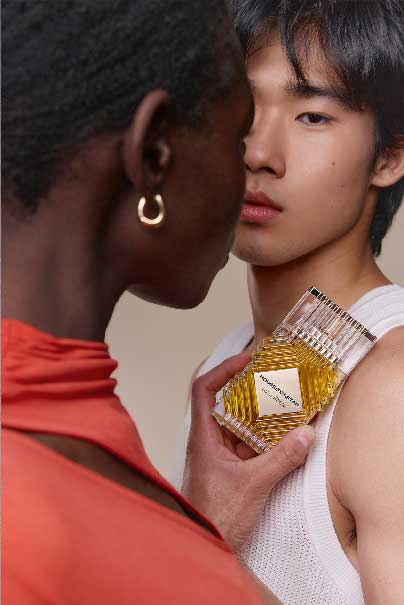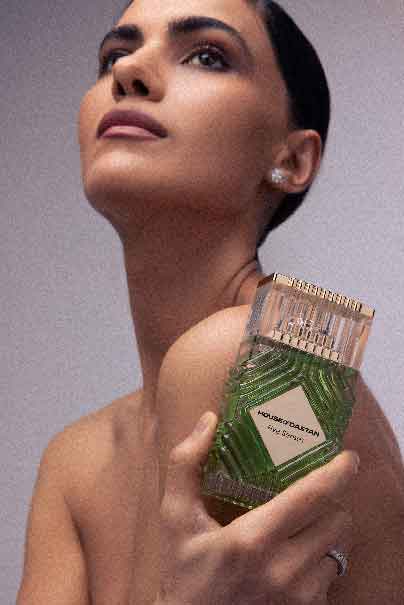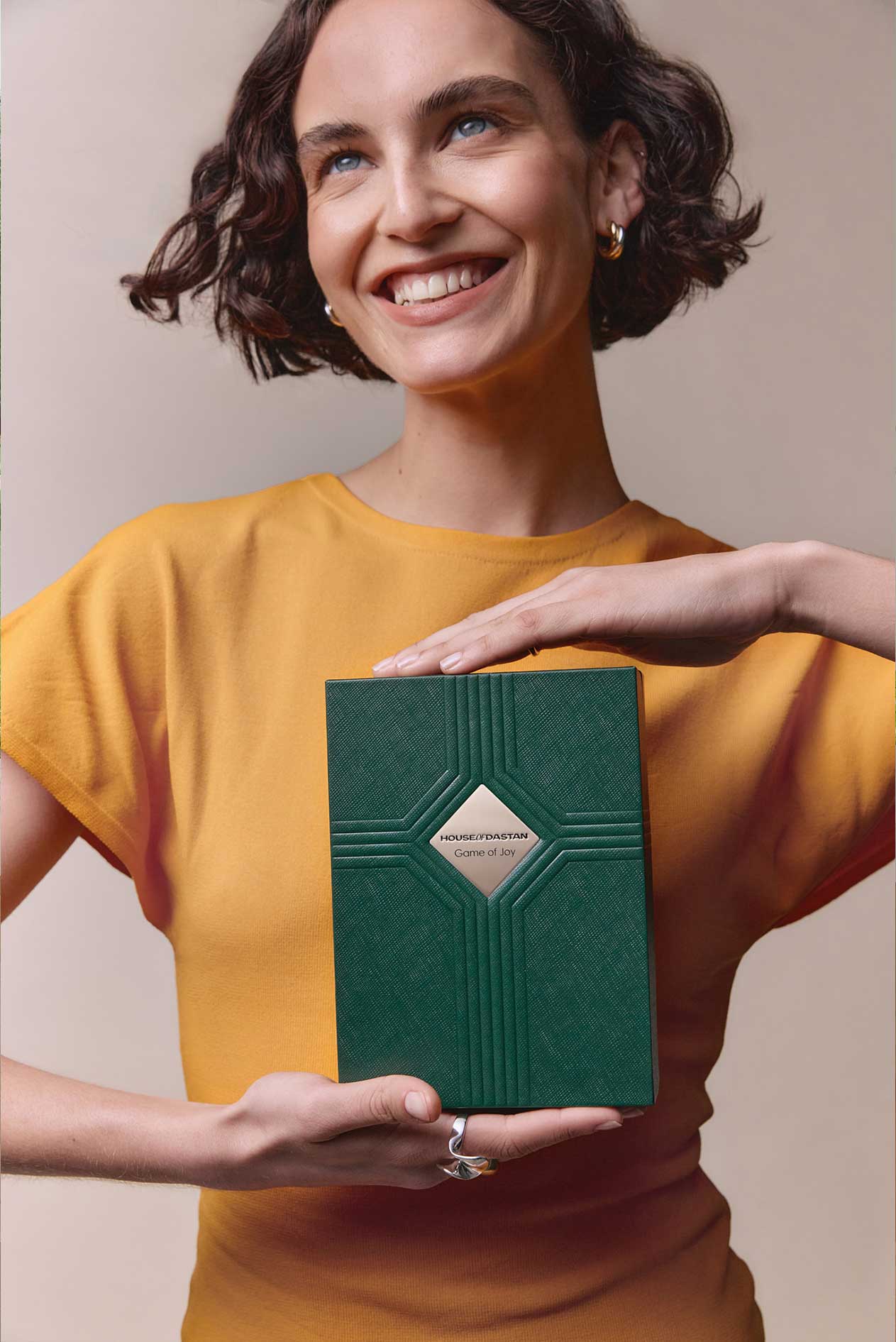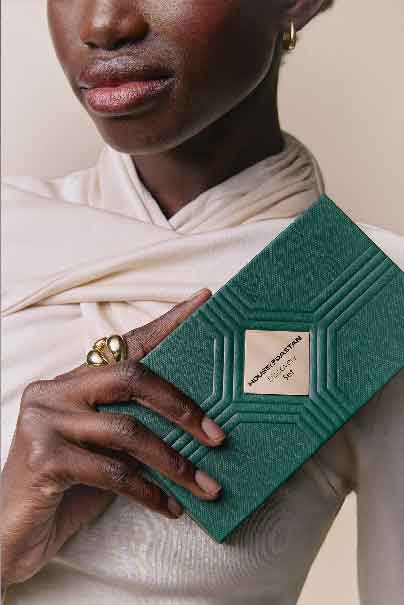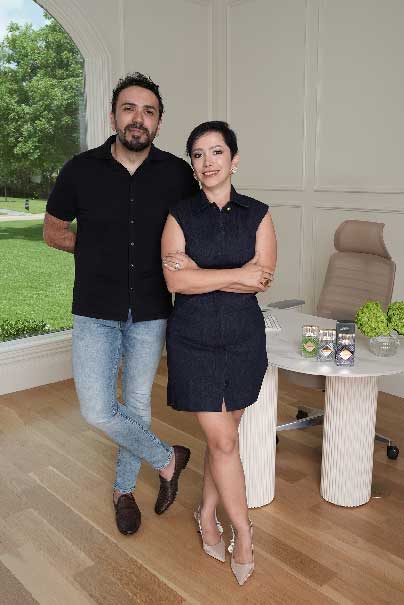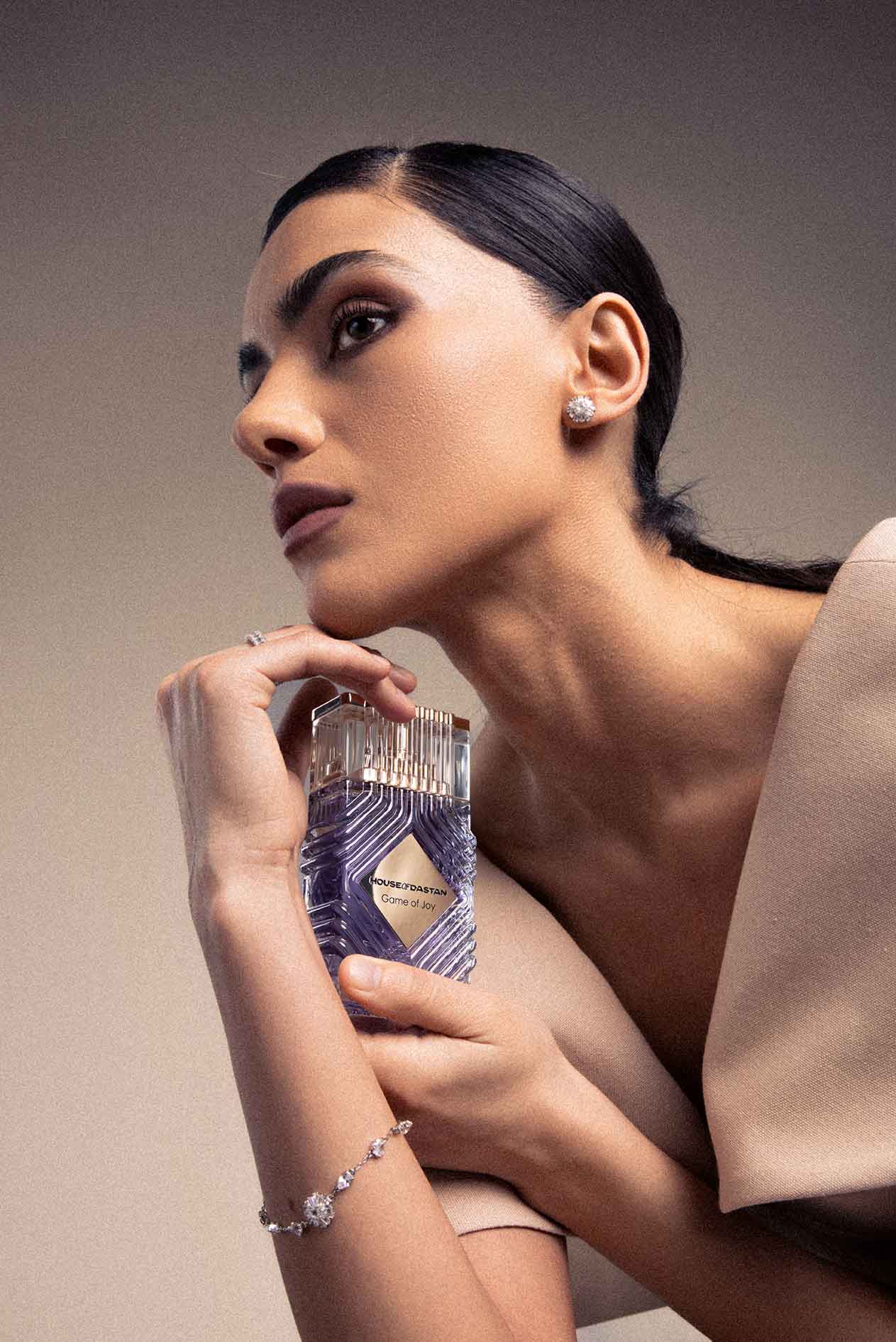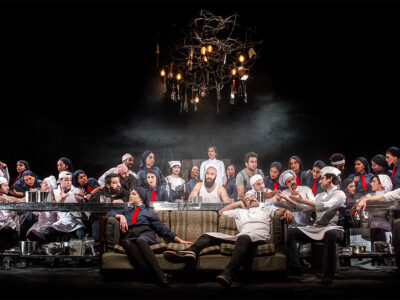A Fragrant Conversation with the Founders of House of Dastan
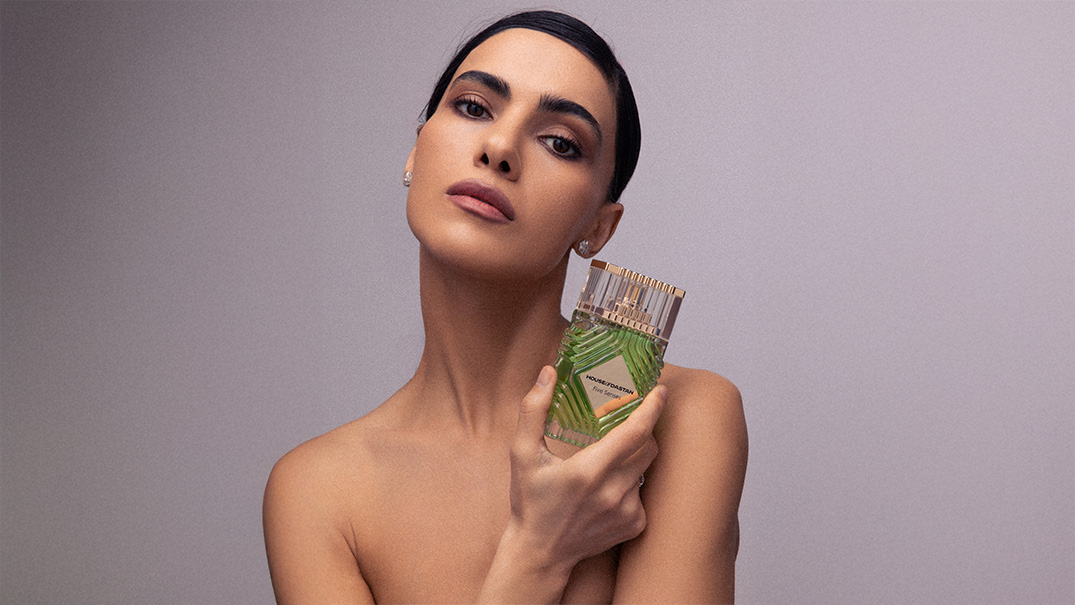
Interview by Ali Shahrakhi, ZH Magazine
In an era where luxury is too often reduced to surface and spectacle, House of Dastan dares to go deeper—into memory, mythology, and the mysteries of the self. Founded by siblings Sonia and Hamed Arefian, this fragrance house draws its power not only from rare ingredients or refined packaging, but from something more intimate: story.
Rooted in Persian poetic traditions and sculpted through French perfumery techniques, House of Dastan invites wearers to experience scent as narrative—where love, longing, and transformation unfold like verses across the skin. From the architectural elegance of its bottles to the emotional complexity of its accords, this is a brand that doesn’t just offer perfume—it offers a portal.
In this exclusive conversation with ZH Magazine, Sonia and Hamed take us behind the scenes: into the moments that inspired their vision, the creative tensions that shaped their scents, and the cultural bridges they continue to build.
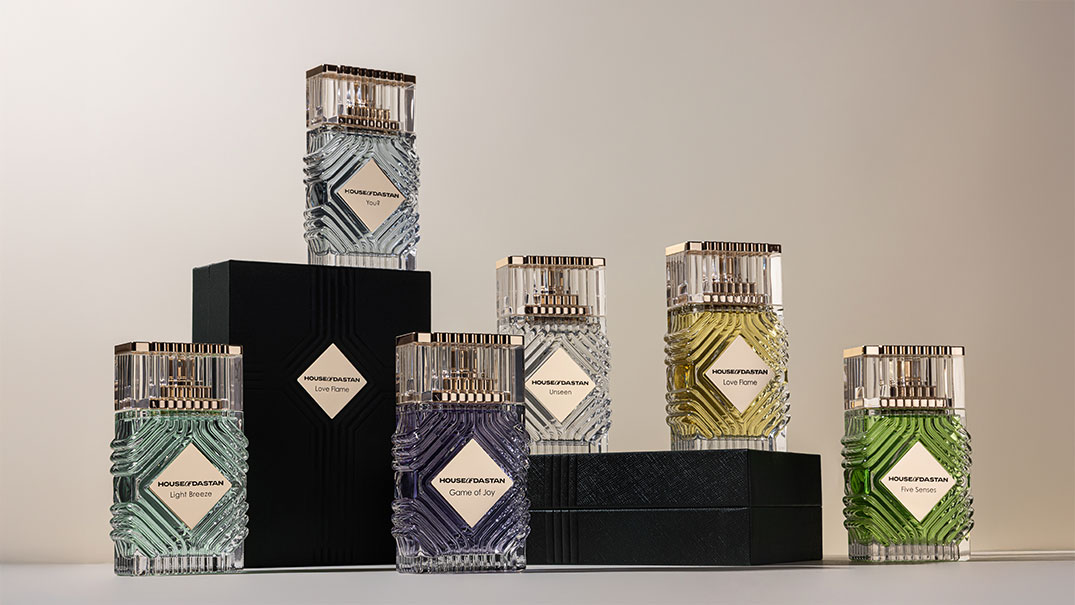
ZH: Let’s begin with the name: “Dastan” means “story” in Persian. What is the very first personal memory or story that planted the seed for this house?
Sonia & Hamed: It started with scent as memory. For us, it was the smell of saffron rice in our grandmother’s kitchen, the rosewater and cardamom in her tea, the jasmine on our father’s scarf. We didn’t know it then, but those moments were our first “dastan.” The idea didn’t come from strategy—it came from nostalgia, longing, and the desire to preserve something meaningful.
ZH: You both come from two decades in the fragrance industry in New York. At what moment did you feel the pull to step away from retail and start something of your own?
Sonia & Hamed: After years of helping others build their brands, we realized our own story was still unwritten. One late-night conversation changed everything: “What fragrance would we create if we had no limits?” It wasn’t about stepping away from retail—it was about stepping toward authenticity.
ZH: House of Dastan sits at a crossroad between Persian heritage, Parisian refinement, and New York modernity. How did you go about balancing these three worlds without losing the essence of any?
Sonia & Hamed: We didn’t try to blend them—we let them coexist. Persian heritage gives depth and poetry. Parisian perfumery brings structure. New York adds edge and clarity. Where they overlapped, magic happened. House of Dastan is not a compromise; it’s a conversation.
ZH: How did the collaboration with Master Perfumer Richard Herpin begin? What did he uniquely bring to the soul of your fragrances?
Sonia & Hamed: We admired his work for years. When we met, it felt like a creative kinship. Richard understood we weren’t just building scents, but narratives. He has an instinct for turning abstract emotions into olfactory form. He brought sophistication, restraint, and heart to every formula.
ZH: The storytelling aspect of your brand is powerful. Do the scents begin with a story first—or do the ingredients and accords guide the narrative?
Sonia & Hamed: Always the story first. We begin with a memory, a line of poetry, or even a question like, “What does walking in the Isfahan rose garden smell like?” From there, we work backward into the notes. The ingredients are our alphabet, but the story is always the language.
ZH: One of the most striking things is how much poetry influences your collections—Hafez, Rumi, Saadi, Ferdowsi. What is your personal relationship with poetry, and do you each have a favorite verse that resonates deeply?
Sonia & Hamed: Poetry is how we understand the world. In Persian culture, poetry isn’t a luxury—it’s a daily language. One verse that lives in our hearts is from Rumi:
“Don’t get lost in your pain; know that one day your pain will become your cure.”
That line captures why we create. Scent can be healing, redemptive, even alchemical.
ZH: The bottle design is both architectural and symbolic. What Persian architectural elements or memories inspired this visual direction?
Sonia & Hamed: The lines are inspired by Persian Palaces—the mirror work, the mosaics, the sacred symmetry. But we wanted it to feel sharp and modern too, like something you’d find in a New York gallery. The result is both timeless and present: architectural poetry you can hold in your hand.
- Founders Sonia & Hamed
ZH: Fragrance is deeply emotional, but also highly personal. How did you manage to involve over 500 customers in the creation process without diluting the artistic integrity of the final product?
Sonia & Hamed: We didn’t ask them to create—we invited them to respond. We shared concepts, early mods, and raw materials. What we listened for wasn’t preference, but feeling. If a sample made people nostalgic, or if it reminded someone of a place they hadn’t thought of in years, we knew we were close. It was collaborative, but guided with vision.
ZH: Let’s talk about the fragrances themselves. “Love Flame,” “You?”, “Five Senses”—each has a conceptual soul. Which fragrance feels the most autobiographical to you?
Sonia & Hamed: Honestly, it’s hard to choose just one. They each hold something personal.
Love Flame is our warmth—it’s rich, chocolatey, intimate. A quiet fire that lingers.
You? is the mirror. It adapts to your skin, your chemistry, becoming uniquely yours. It gives people space to reflect and reveal themselves.
Unseen is the scent of freedom—borderless, unbound, like the feeling of walking through a place you’ve never been but somehow know.
Game of Joy celebrates the everyday—those simple, repeatable moments of happiness we often overlook. It’s essential to life, not an accessory to it.
Light Breeze is our ode to summer—fresh, elegant, effortless. It’s that feeling of sunlight on linen.
Five Senses: It doesn’t just engage your senses—it reawakens them.
It’s a full sensory immersion, just like the journey of building House of Dastan.
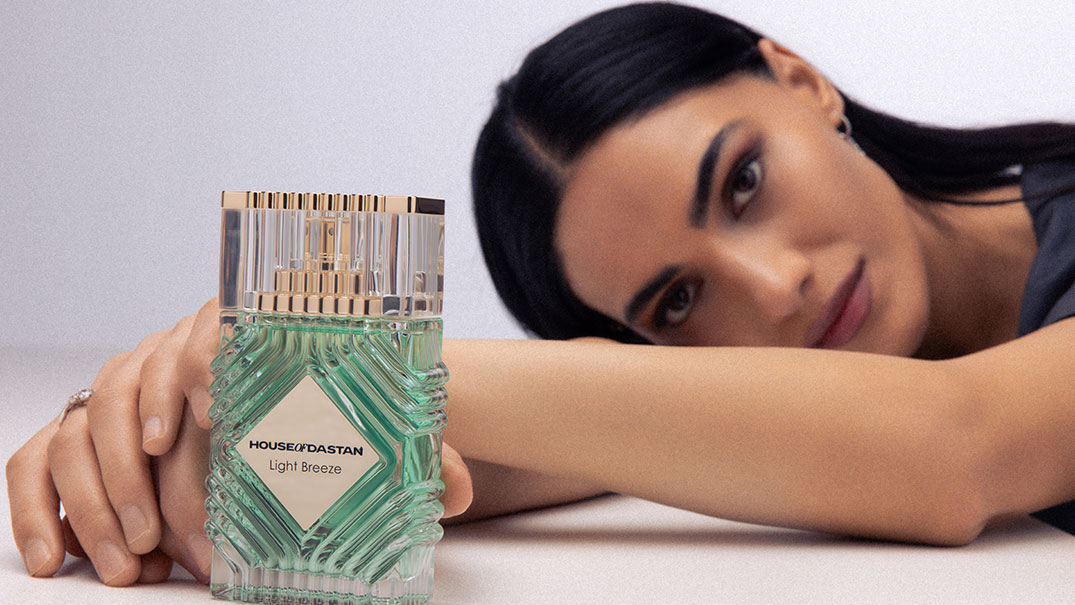
ZH: There’s a growing audience in the U.S. that’s discovering Middle Eastern and Persian scent traditions for the first time. What do you hope they feel when they encounter House of Dastan?
Sonia & Hamed: We hope they feel curiosity, then connection. Our heritage is rich, but it’s not exclusive. Persian scent culture isn’t just about intensity—it’s about intimacy, beauty, and storytelling. If people walk away feeling something—nostalgia, desire, peace—we’ve done our job.
ZH: Creating a fragrance house in today’s saturated market is a bold move. What was the most difficult decision you had to make during this journey?
Sonia & Hamed: There were many critical decisions along the way, but choosing the name was by far the hardest.
We asked ourselves: Should we name the fragrances in Persian? Should we lean into that identity at a time when the world feels so polarized?
There was hesitation. Skepticism. A fear of being misunderstood.
But in the end, we followed our hearts and chose House of Dastan.
Because this brand was born from who we are. And we believe there’s quiet power in standing for your roots, your language, your story.
ZH: There’s a strong visual storytelling language on your website and in your branding. How involved were you personally in the creative direction—colors, typography, logo, photography?
Sonia & Hamed: Intimately. Every pixel, every shade, every stroke. Design is part of storytelling. The logo is a nod to Persian tiling. The photography lets people feel before they even smell.
ZH: What’s one misconception people have about Persian culture that you hope House of Dastan helps shift or clarify?
Sonia & Hamed: That’s it’s frozen in the past. Persian culture is alive—evolving, poetic, rebellious. Through Dastan, we hope people see the spectrum: not just the ancient, but also the avant-garde.
ZH: How do you define “luxury” in today’s fragrance world? And where do you draw the line between exclusivity and accessibility?
Sonia & Hamed: Luxury is care. It’s thought, artistry, and emotion. It’s not about price—it’s about presence. You can be refined without being remote. House of Dastan is memorable, approachable, and wearable.
ZH: Finally, if House of Dastan were a single poem—just one verse to represent everything it stands for—what would it be?
From Hafez:
“I wish I could show you when you are lonely or in darkness, the astonishing light of your own being.”
That’s Dastan. We bottle that light.
Published in collaboration with House of Dastan
Interview by Ali Shahrakhi,
Founder & Editor-in-Chief, ZH Magazine

